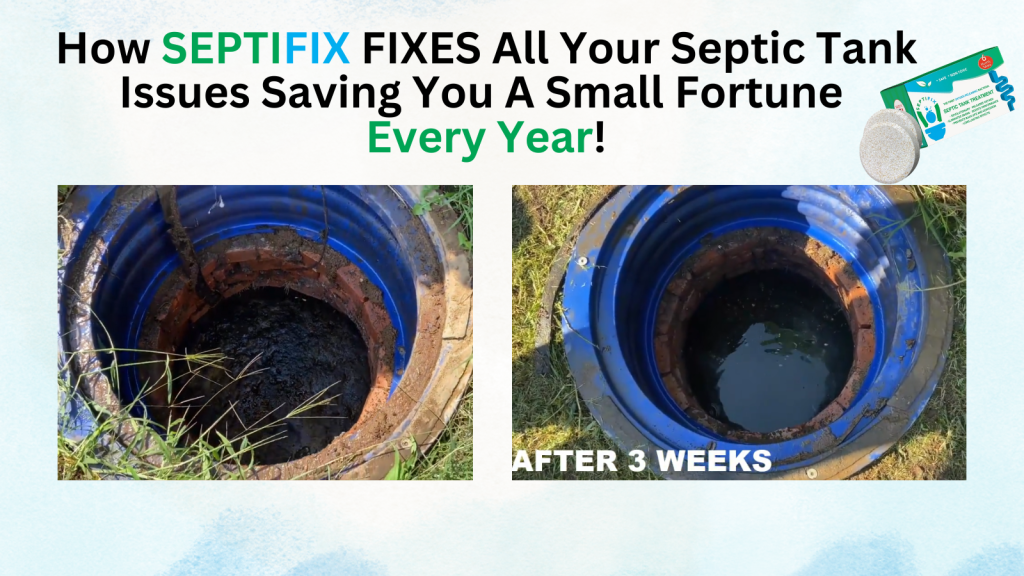Gray water, the wastewater from sinks, showers, and washing machines, is often reused for irrigation and other non-potable purposes. However, improper disposal can pose environmental and health risks. With new gray water disposal laws Missouri now in effect, understanding legal requirements is essential. This guide explains updated regulations, compliance steps, and best practices to help residents and businesses legally manage gray water.
Table of Content
- Understanding Gray Water and Its Uses
- Overview of Missouri’s New Gray Water Disposal Laws
- Permit and Installation Requirements
- Compliance and Environmental Impact
- Penalties for Non-Compliance
- Septifix
- Septic Permit Links by State
Understanding Gray Water and Its Uses
Gray water differs from black water, which contains human waste from toilets. Because gray water carries fewer contaminants, it can be treated and reused for landscaping, toilet flushing, or other non-drinking purposes. Many homeowners seek alternative water conservation methods, making gray water reuse an attractive option. However, Missouri’s updated laws now enforce stricter guidelines to ensure safe and environmentally responsible disposal.
Slow Drains: A Warning Sign | How Slow Drainage in Sinks and Tubs Can Indicate Septic Issues
Overview of Missouri’s New Gray Water Disposal Laws
Recent changes in Missouri gray water laws emphasize proper handling to prevent contamination. Key updates include:
- Permit Requirements: Homeowners must obtain permits for gray water reuse systems beyond basic residential use.
- System Design Standards: Approved systems must meet health department guidelines to prevent groundwater contamination.
- Discharge Regulations: Direct discharge of untreated gray water into yards or storm drains is prohibited.
- Treatment Guidelines: Certain filtration or disinfection processes may be required for specific uses like irrigation.
Missouri’s laws align with national wastewater management standards, ensuring environmental safety while allowing limited gray water reuse.
What Are Septic-Safe Products?
Permit and Installation Requirements
To install a gray water system legally, homeowners and businesses must follow these steps:
- Apply for a Permit: Contact the local health department to determine if a permit is required for your system type.
- System Approval: Plans must meet state-approved specifications to ensure safe disposal and prevent health hazards.
- Installation Inspection: Authorities may conduct inspections to confirm compliance with Missouri gray water regulations.
- Ongoing Maintenance: Regular maintenance ensures system efficiency and prevents contamination risks.
Compliance and Environmental Impact
Following Missouri’s updated gray water disposal laws helps protect water sources and public health. To stay compliant:
- Use only approved treatment systems that prevent bacterial growth.
- Avoid discharging gray water near wells, streams, or drinking water sources.
- Follow local guidelines for irrigation, ensuring water does not pool or create runoff hazards.
- Keep detailed records of system maintenance and inspections to demonstrate compliance.
Implementing these best practices minimizes environmental impact while promoting responsible water conservation.
Penalties for Non-Compliance
Failure to follow Missouri’s gray water disposal laws can result in significant penalties, including:
- Fines ranging from $500 to several thousand dollars, depending on the violation severity.
- System shutdown orders for unauthorized installations or improper use.
- Legal action if gray water contamination causes environmental or public health risks.
Common violations include failing to obtain necessary permits, discharging untreated gray water improperly, or installing non-compliant systems. Staying informed about regulatory changes can help homeowners and businesses avoid costly fines.
Conclusion
Missouri’s updated laws ensure responsible gray water use while protecting public health and the environment. By understanding new gray water disposal laws Missouri, residents can install compliant systems, follow proper disposal practices, and avoid legal penalties. Stay informed about local regulations and consider consulting a professional for system design and installation.
Looking for more septic and wastewater management tips? Explore our expert guides for practical solutions to keep your system compliant and efficient!
Septifix










